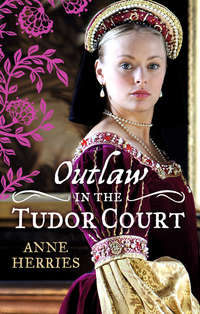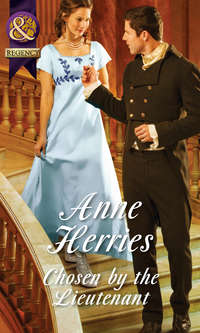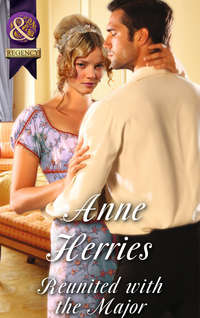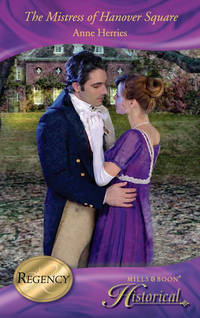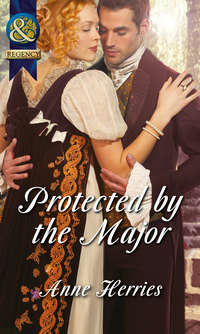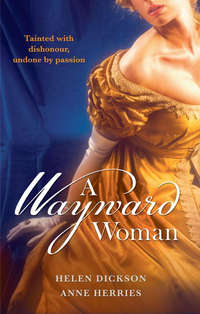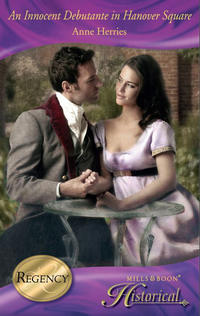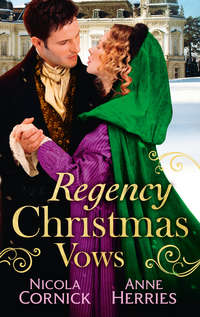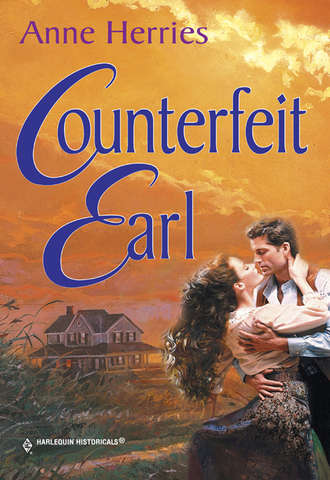
Полная версия
Counterfeit Earl
“Yes…” Olivia was much struck by this. She had been shaken by the incident with the dog, and then a little annoyed with her rescuer for implying that she was foolish to have wandered into the woods alone, and had not given his title much consideration. “Yes, I think you may be right, Beatrice. That would account for his brusque manner. He did not strike me as someone accustomed to mixing in society often.”
“Are you saying he was not a gentleman?”
“No, of course not. He was definitely a gentleman, but his manner was a little harsh…or reserved might be a better word. I think he may well have been a soldier—and if he was wounded out there, it would account for his appearance.”
“Well, as long as he did not insult or harm you?”
“Oh, no,” Olivia said. “Quite the opposite. He seemed most concerned that I was alone in the woods, and insisted on seeing me safe to the road. His dog has been trained to attack gypsies. Apparently they are a nuisance in these woods…”
Beatrice nodded. Obviously a country gentleman, she thought, perhaps with some recent military service. Olivia was used to the refined manners and gentle flirtation offered by the gentlemen she had met in London drawing-rooms. She might well find the abrupt way of speaking some country squires had a little harsh.
“It seems there was no harm done,” she said. “Get into the coach now, my love. I think coachman is ready to go on.”
“Yes, of course,” Olivia said. She glanced back towards the wood but could see no sign of Captain Denning. Why should she want to? He was not handsome in a conventional way, nor charming. Yet there had been something about him. “Yes, of course, we should go on…”
She climbed into the coach and settled her gown about her. It was most unlikely that she would ever meet Captain Denning again.
Jack Denning stood amongst the trees, watching as the carriage moved off. He whistled to Brutus, then turned to continue his walk through the woods of his estate. All the land to both sides of the main highway had belonged to his maternal grandfather until a few months ago, when the very desirable estate and substantial property elsewhere had passed to him through Sir Joshua’s will.
Jack had been sad to learn of his grandfather’s death on his return to England. Sir Joshua was the one person ever to have shown Jack true love and affection, and he had been very fond of him.
“Sir Joshua was a very wealthy man,” the solicitor had told Jack when he at last answered Trussell’s repeated invitation to call at his offices. “His fortune was made from trade, Captain Denning. Ships, coal and iron—he had invested in a new foundry just a few months before his final illness. I do not know whether you would wish to sell? I do have buyers interested, should you wish to dispose of one or all of Sir Joshua’s assets.”
It was not usual for the aristocracy to be concerned in trade. Many young men in Captain Denning’s position would have instantly sold the flourishing businesses and invested their money in land or the five percents.
“Not for the moment,” Jack said, surprising the lawyer. “If Sir Joshua believed in them, I imagine they are good investments.”
“Your grandfather was an excellent businessman, sir.”
“Yes, I imagine he must have been. Tell his agents and managers to carry on as usual for the moment. I shall give myself time to think about the future before I do anything.”
Jack was not sure what he wished to do about any of the estate. There was sufficient money for him to live the life of a gentleman of leisure should he so wish, but he doubted it would suit him. He had loved the routine and bustle of army life—but that was over. His memories of comradeship had become tainted by those last hours at Badajoz.
He shut the pictures out of his mind resolutely. There were times now when he almost managed to forget…almost.
But there was no sense in remembering. He had failed, and his shame haunted him, most often at night when the dreams tortured him so that he woke sweating and crying out in pain and remorse.
He should have stopped it! Damn it! He should have done something. He had been so stunned, so disgusted by what he was seeing, that he had been slow to react…and then it had been too late. No, he could not go back, he must find a way to go forward, find a future for himself.
Jack frowned as he returned to the house at last and saw the old-fashioned, heavy travelling coach pulled up outside the front door of Briarwood House. The crest on the side panel would have told him who his visitor was had he needed to be told, which he did not. He had subconsciously been expecting this visitor for weeks, ever since his return to England.
“The Earl arrived half an hour since,” Jenkins told him as he entered the hall after scraping the mud from his boots outside the annexe door. “I asked his lordship to wait in the library, sir, and I took him some of the good Madeira Sir Joshua laid down.”
“Thank you,” Jack said and smiled. “You did exactly right.”
He glanced at himself in the mahogany-framed mirror in the main hall, brushing some debris from the sleeve of his coat. He was dressed in the simple garb of a country gentleman, but he must not appear careless. The Earl was a stickler for good manners, and it would not do to arrive looking as if he had come straight from the stables.
In the large, comfortable parlour, the Earl of Heggan was standing by the long French windows looking out on to the formal gardens. He was a tall man, silver-haired and impeccably dressed in knee-breeches and a frockcoat with wide tails, a style that had been fashionable some years back and was perhaps more formal than usual for the country. He turned as Jack entered, moving a little stiffly, his face showing no signs of the pain he suffered almost constantly.
Jack would not have expected anything else. Lord Heggan had never been known to show weakness of any kind.
“Forgive me for not being here to receive you,” Jack said. “You sent no word of your intention to visit today.”
“I imagined you would be expecting me?” Lord Heggan’s clipped tones spoke of his disapproval.
“Yes. I expected a visit at some time, though I was uncertain of precisely when you would come.”
“It would have done you more credit had you the courtesy to call on me, sir.”
“I believe you know my reason for not doing so,” Jack replied. They were very alike in that moment, two strong-willed, uncompromising men. “You have been staying at Stanhope. I vowed never to return when I left six years ago, and I do not lightly break my vow.”
“You are a stubborn young fool,” the Earl said and sighed. “You will forgive me if I sit down? I am past seventy and too old to stand for long. Besides, the journey tired me.”
Jack knew a moment of concern as he saw beneath the older man’s mask and sensed how much of a strain he was under.
“Forgive me, sir. You are not well. I had not realized.”
“It is merely age,” the Earl said and frowned. “I dare say there are less than five years left to me at most—that is why it is imperative that we talk.” He looked straight at his grandson. “I know you have no love for Viscount Stanhope. I do not blame you. My son has lived as a wastrel, and will, I have no doubt, die with his sins upon him. He does not repent and swears he will not as he draws his last breath.”
“My father cursed me when I left his house,” Jack replied. “I am aware that he is ill. Mama told me that he cannot live long when I called on her in London. If you have come to beg me to see Stanhope, you have wasted your time, sir. He would spit in my face and accuse me of having come to gloat at his deathbed.”
“I dare say you are right,” the Earl said. “I am not such a fool as to waste my breath on a lost cause. It was my duty to see Stanhope. I have advised him to make his peace with God at last. I could do no less.”
Jack nodded. The Earl had seemed a distant figure when he was younger. Unbending, a stern disciplinarian who descended on the house only to make his displeasure known, but he was a just man by all accounts.
“No one could expect more, sir.” Jack looked him in the eyes. “If it was not for my father’s sake—why have you come?”
“To remind you of your duty to the family,” the Earl said. His faded blue eyes were seemingly without warmth or feeling. “You have been sent back to England for one purpose. Since your father has only months—or weeks—to live, you must make sure of the succession. You must marry and get yourself an heir before it is too late.”
“I am seven-and-twenty, sir,” Jack said, a faint smile in his dark eyes. “I do not think the case desperate just yet.”
“Your life has been in danger since you went to the Peninsula,” the Earl replied. “Now that you have returned to England, you could be killed in a fall from your horse or take a fever and die of it in days. Until you have at least one son, there is a danger that the title will die with you. We have no male relatives. Therefore it is your duty to make sure of the succession.”
“I have no wish to disoblige you, sir,” Jack said, his mouth set hard. “But at the moment I cannot promise to do as you ask. I have no desire to marry.”
“Your desires are of no importance.” The Earl glared at him. “I thought I had made myself plain. This is a matter of duty. Your own wishes are secondary. You owe this to me as the head of the family.”
“Forgive me, sir, but you do not know what you ask.”
“If you are thinking of love…”
“I was not,” Jack said. “And I know what you were about to say—that I should make a marriage of convenience and take my pleasures where I will. You above anyone should know that the idea of such behaviour is abhorrent to me. I have a mistress who suits me well enough for the moment. She is a lady of good birth, married to a man who neglects her. Should I take a wife, Anne and I would part by mutual agreement and as friends.”
“At least you have some sense of decency, which is more than Stanhope ever did,” muttered the Earl, a grudging approval in his eyes. “Why will you not do your duty, Jack?”
“If I were to marry, it would naturally be to a girl of good family, an innocent, respectable girl—and that I shall not do.” Jack’s face was hard, his mouth set in a stubborn line. “My hands are stained with the blood of innocents, sir. My touch would defile a decent girl.”
“Ridiculous!” snapped the Earl. “You are a damned fool, Jack. I shall hear no more of this nonsense. If you wish to inherit my personal fortune as well as the Heggan estate and title, which is of course entailed, you will do as I ask.”
“Titles mean nothing to me,” Jack replied. “As for money—Sir Joshua left me more money than I shall ever spend. I have ever lived by my own code of honour, and it is all I have left to me. Do not ask me to deny it for the sake of a fortune, for I shall not do so.”
“By God, sir!” The Earl’s eyes glinted. “If I were a younger man I should thrash you.”
Jack smiled oddly. “You might try, sir—but if you were a younger man and not my grandfather, I might be forced to kill you.”
“Damn you! Where did you get your stubborn nature? Your father was a weakling, a drunken wastrel who gambled away his life and his fortune. Your mother a cold beauty with no heart.”
“Would you have me trapped into the same kind of marriage as they had?” Jack asked. Then, before the Earl could reply, “And, since you ask, I believe I resemble you in character more than either of us had previously imagined.”
“Perhaps.” The Earl inclined his head stiffly, the faintest flicker of a smile in those faded eyes. Jack’s remark seemed to have softened him. “We should not quarrel, Denning. Is there nothing I can do to change your mind?”
“At this moment? Nothing.”
“Then I may as well go back to Stanhope. The servants will neglect your father if I am not there to remind them of their duty. I believe they hate him to a man.”
“Can you blame them?”
“No, I do not blame them, but I will not have him neglected. He shall die peacefully in his own bed, if not at peace with himself and his Maker.” For one brief moment there was a flicker of emotion in the Earl’s eyes. “I beg you, Jack. Find yourself a wife—not just for my sake, not just for duty, but for your own good. To live and die alone is a fate I would not wish on my worst enemy.”
Jack turned away, walking over to the window to gaze out at the sky, which was clouding over. For some reason he did not understand, a girl’s innocent face had come into his mind.
“If I found a woman of the right birth, a woman who could bear me near her knowing what I feel, that I am tainted to the core and can never love her, then I might oblige you. I am not unaware of my duty to you, Grandfather.”
“I pray that you will find such a woman,” the Earl said. “Indeed, you are often in my prayers, Jack. I sincerely hope that you will find peace soon.”
“Would that I could!” Jack muttered. He did not turn, for he knew that his face must reveal the inner torment he felt. “Would that I could…”
Chapter Three
“It was so fortunate that we should meet like this,” Olivia said as she linked arms with her friend. “Beatrice was feeling a little tired this morning, and begged me to take one of the maids with me on my walk rather than sit indoors on such a lovely day.”
“The Dowager Lady Exmouth felt exactly the same this morning,” Robina Perceval cried with a laugh. “It is only to be expected in her case. We have been out until the early hours for several nights—but you arrived in Brighton only two days ago. I do hope Lady Ravensden is not unwell?”
“No, no, not at all,” Olivia replied. “She is blooming. I have never seen her look so well. She was just a little sleepy this morning, but she assured me that she would accompany me to Lady Clements’s ball this evening. I understand it is to be a rather grand affair?”
“Oh, yes. Lady Exmouth knows her well…” There was a faint flush in Robina’s cheeks. “She has been very kind to me…Lady Exmouth, I mean.”
Olivia glanced at her companion. Robina had dark hair and blue eyes, and was quite lovely in her own quiet way. She had a modest manner and had not dressed to attract attention in the past, but seemed to have an air of fashion about her now; she certainly turned the heads of several gentlemen.
“You wrote to me that you had enjoyed your Season in London very much—but you did not form an attachment to anyone?”
“No…” Robina seemed to hesitate, then shook her head. “No, I have not formed an attachment.” She sighed. “Several gentleman were very kind to me, but I long for—for something different. A little excitement…romance.”
“Oh, you are so like me!” Olivia cried and laughed. “I could have married…” She blushed. “Oh, I did not mean that unfortunate business with Lord Ravensden…”
“Did you really jilt him, Olivia? People are saying it was as much his fault as yours.”
“In a way it was. I believed it was a love match, you see. I believed he was in love with me and—and I thought I would come to love him in time. When I realized that in fact he was marrying me to oblige Lord Burton, I immediately broke it off. After Lord Burton turned me out, Lord Ravensden came to Abbot Giles to ask me to reconsider—then he met Beatrice and they fell in love.”
“But he settled some money on you, did he not?”
“Yes, he has been very generous. I have ten thousand pounds, which is secured to me for life and mine to dispose of as I wish,” Olivia said. “And he set the tale about that we had parted by mutual consent—which in the end was true. For neither of us wished to marry the other after he met my sister.”
“Well, it was fortunate that you did not,” Robina said, smiling at her. “Now you are free to find someone you could love.”
“Yes…” Olivia sighed. “I wish I could, but like you I long for romance.” She laughed. “How foolish we are. We have read too many of Mrs Burney’s novels. I dare say it would be most uncomfortable being married to a hero after all. He would forever be riding off to battle with dragons and the like, leaving his poor wife to cope with all the difficulties of running his estate and rearing his children.”
Robina nodded, but her expression was slightly dreamy. “I dare say you are very right, but I would sacrifice a little comfort for the sake of true love, would you not?”
“I long to be truly loved,” Olivia said passionately. “To be loved by one person to the exclusion of all others, to know that for one person you are the most important of all.” She blushed as she realised how much she had revealed of her inner self. “Oh, I know that most girls of our class settle for much less, and I dare say I am asking for too much…” She gasped and stopped walking, clutching at her companion’s arm.
“Is something wrong?” Robina followed the direction of Olivia’s gaze. A man and a woman had stopped a few yards ahead of them on the promenade. They seemed to be looking out towards the sea at a ship in full sail, obviously admiring the view. “Are you unwell?”
Olivia’s cheeks had drained of colour. “No,” she said. “Only, may we please turn back now?”
“Yes, of course.” Robina looked at her curiously as they walked in the opposite direction. “Did you know Lady Simmons?”
“No.” Olivia turned to her. “Was that her name? She looked…remarkable.”
“She was a famous beauty a few years ago,” Robina said. “They say she could have married a duke in her first season, but she chose a mere baronet. These days she lives mostly in Bath and apart from her husband, though I believe she visits him in town occasionally. She must have come to Brighton to see someone in particular, I would imagine.”
“Perhaps to meet her companion?” Olivia suggested, her cheeks pink.
“I wondered if the gentleman might be her lover; she has one, they say, but I do not know him,” Robina said. Her gaze narrowed as she looked at Olivia’s expression. “But you do, do you not?”
Olivia blushed. “We have met briefly. On the road to Brighton. Our carriage was delayed and I went into the woods. His dog thought I was a gypsy and would not let me pass until he ordered it to lie down.”
“Then you know his name?” Robina was curious.
“Yes. He called himself Captain Jack Denning.” Olivia frowned. “He looked as though he might have been ill and he was dressed very differently that day. At first I took him for a gamekeeper.”
“Oh, Olivia,” Robina cried with a delightful laugh. “He did not look so today.”
“No…”
Olivia was thoughtful as she and her friend continued their walk along the promenade. There was no mistaking Captain Denning’s quality that morning. He was dressed in a dark blue cloth coat which fitted him to perfection, showing that although lean, he was powerfully built. His immaculate buff-coloured breeches and highly polished boots, together with his exquisitely tied neckcloth, were evidence that when he chose he could rival for elegance any gentleman Olivia had met in London. And his hair had been trimmed, though he still wore it longer than most gentlemen of her acquaintance. It gave him a slightly rakish air.
“Were you aware that Captain Denning would be in Brighton?” Robina asked.
“No. Indeed, he said he had no intention of visiting in the near future.”
“How odd. I wonder why he lied?”
“I cannot imagine.” Olivia felt a little piqued. Surely there was no reason for Captain Denning to have lied to her? “It is all of a piece with his behaviour that day. He was abrupt and harsh—and I did not care for him particularly.”
“Well, you will have to acknowledge him should you meet,” Robina said. “But I dare say there will be no necessity to do more.”
“I am sure you are right,” Olivia agreed. “Now, let us talk of something more agreeable. Beatrice was speaking of giving a dinner when Lord Ravensden arrives next week. Pray tell me, do you have an evening free of engagements?”
“I shall consult with Lady Exmouth,” Robina promised. “But perhaps you and Lady Ravensden will call for tea this afternoon?”
“Oh, yes, I am sure Beatrice will agree.” Olivia smiled at her. “I am so glad you came to Brighton, Robina. It is so much nicer to have at least one good friend one can talk to.”
“Someone to whom one can confide one’s secrets,” Robina agreed.
Smiling at one another in perfect harmony, the two girls walked on. Both were completely unaware that a pair of dark eyes was following their progress as they crossed the road and disappeared around the corner of the street.
“Jack! You were not listening to one word I’ve just said,” Lady Simmons accused. “Have you something on your mind?”
“Forgive me,” Jack apologised, his dark eyes focusing on her once more. “I was not intending to ignore you.”
“You were just a little distracted,” she murmured, a sparkle of amusement in her soft grey eyes. She was a remarkably attractive woman, with dark brown hair and a wide, generous mouth. “Tell me, which of the two young ladies drew your attention, my dear?”
“Was it so obvious?” Jack gave her a rueful smile. “Two days ago Miss Olivia Roade Burton wandered into my woods. Brutus was preparing to attack her when I arrived on the scene. I was concerned that she had ventured so far into woods she did not know, for there has been trouble with gypsies, and I fear I may have been harsh with her. Indeed, since she could not bring herself to pass me just now, I believe I must have offended her.”
Anne nodded, her intelligent eyes thoughtful as they continued their walk along the marine parade. “I know your manner can sometimes be a little abrupt. You must apologise next time you meet Miss Roade Burton, Jack.”
He shook his head at her. “She is not for me, Anne. You know I have no thoughts of marriage.”
“I am aware that you have some foolish ideas in your head, my dear.” She smiled at him with affection. “You are worth ten of most gentlemen I know. What happened at Badajoz was not your fault.”
“It is not just that—though it haunts my dreams,” Jack replied, his dark eyes shadowed with pain for a moment. “I do not believe I am capable of loving, Anne, not with my whole heart. Not as a woman I would make my wife has a right to expect. You are my friend. You do not ask for more than I can give.”
“I believe you have a great capacity for loving,” Anne replied, her look full of warmth. “You were hurt too many times as a child, but one day you will discover your true self. Our arrangement has been a pleasant one for us both. However, should you wish to marry…”
“Yes, I know your mind,” Jack said. “I have a true fondness for you, my dear. Had you been free, Anne, I believe we might have found happiness together.”
“Perhaps.” Her lovely eyes clouded with sadness. “Unfortunately, I am not free.”
Jack touched her hand in sympathy. He knew that she was sometimes desperately unhappy, but her family would never permit her to divorce her husband. They had persuaded Sir Bernard Simmons to allow her to retire to Bath, to live quietly with a companion, but for the sake of the two sons of the marriage, the husband and wife met occasionally in society. Anne’s sons were both boarders at an exclusive school, and she saw them two or three times a year. It was not an ideal situation for her, but it was the best she could expect. Her only alternative was to live abroad in exile, and then she would not have been allowed to see her sons until they reached their maturity.
“Do not pity me,” she said softly. “I was deceived in the man I married, but I have learned to live with my mistakes. I have friends who care for me, and most of the time I am content.”
“I have never pitied you,” Jack replied honestly. “I admire and respect you, Anne. You are one of the finest—and certainly the bravest—woman I have ever met.”
“One day you will meet a woman you can admire, respect and love,” Anne said. “Because I care for you, my dear, I hope that day will come soon.”
Beatrice was sitting in the back parlour of the house in Royal Crescent; it was one of the fairly new houses built by J.B.Otto, an elegant three-storied building faced with black mathematical tiles. She glanced up with a smile as Olivia entered.


